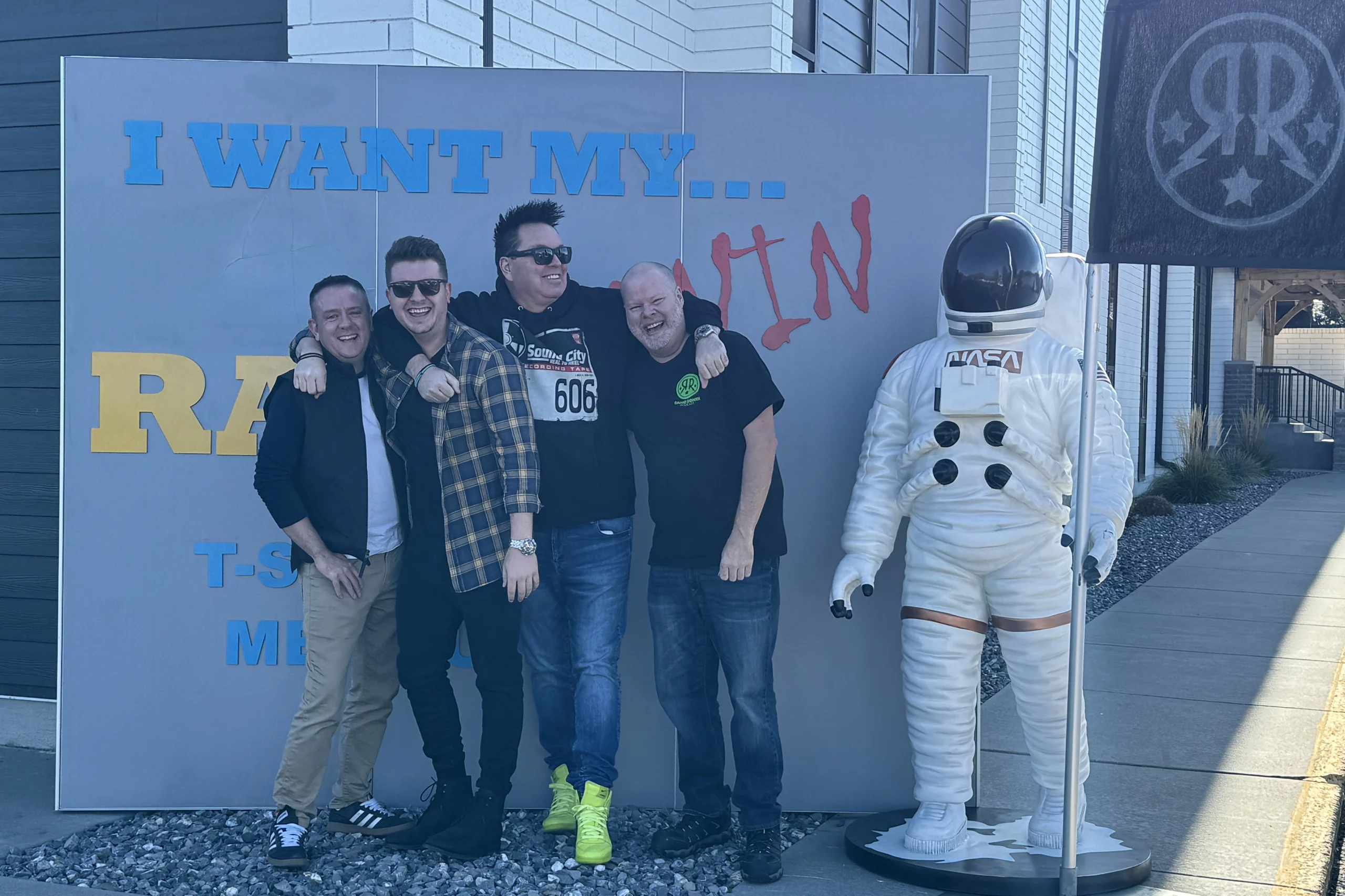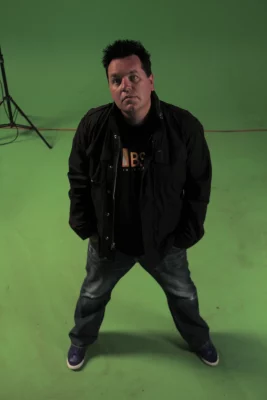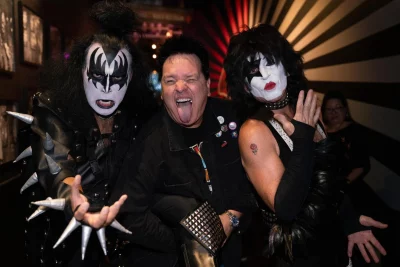
Raiding the Airwaves: The Legacy of Jimmy Chunga and Radio Ronin
Interviews & Features

The tuning frequencies of radio are an unsteady current for the future of media and communications to come. As a viable choice through the 20th century, the ol’ reliable radio informed and entertained the masses. It was your warm company on the darkest of stormy nights and your background singer on Monday mornings. But now, anyone with a WiFi connection and a Five Below microphone can broadcast themselves on the internet like Talk Tuah, leaving radio stations near obsolete. Where do we go from here? How does one remind themselves of the cultural impact? Luckily, I extended my hand through the racing airwaves for answers and what locked grip was one mythical media mogul. Tuning my satellite signal to the Sin City airspace, I had the chance to speak with Jimmy Chunga, the punk rock ringleader of long-absent 101.9 The End (and now, the like-minded podcast Radio Ronin), to analyze this curve.
Coming from humble beginnings, Chunga couldn’t quite break free to find his niche. At a young age, his mom put him in acting classes and school plays. “I was super shy when I was a kid. I threw up when someone tried to talk to me,” Chunga says. However, his boiling passion for music and theatrics would grow gradually, as he grew up in a pinnacle time—the development of the Salt Lake underground scene during the late ‘80s. “I grew up in Taylorsville, going to show up in the mountains to Wolf Canyon to watch Depeche Mode, Pet Shop Boys, New Order—that’s what made me,” Chunga reflects. However, when attending dramatic art classes at Southern Utah University, he became burnt out and disenfranchised, eventually changing his major to political science. This move, although brief, would move him to the more conventional occupation of becoming a police officer for Taylorsville. It was his first day driving to the police academy that would change his whole life in a second. “I saw a radio station billboard on I-215 and went ‘Hey, that’s perfect! That’s what I need to be doing!’” Chunga exclaims. On that whim, Chunga auditioned for the American Technical Center for Broadcasting—a two-year trade school layout that emphasized radio. “I auditioned, got in and graduated with the highest scores [out of] anyone in the previous ten years … I took to it like a fish to water.”
As Chunga went through life unsure about what to do, he captured lightning in a bottle with 107.9 The End, later changed to 101.9 The End for a stronger signal. Those who kept their ears glued to their suburban speakers (like myself) remember the sort of deviant approach that The End brought to the Salt Lake airspace. Funded by Wingers owners Eric and Scott Slaymaker and starting the broadcast from the Cedar Park Business Center in Murray, the bright-morning show was one that didn’t take itself too seriously supplying their listeners with a better-exposure to alternative music. “Alternative fans had two choices at the time: super dark industrial like Nine Inch Nails or Whitney Houston. You didn’t have anything that was in-between,” Chunga says. “So we wanted to take it back to what we thought alternative rock was from the ‘80s. A little more fun, a little more silly and a little more happy than what stations like X96 became at the time.” This kind of initiative came about when reflecting on times like going to Club DV8 such bands like Pearl Jam and Primus. “Once Nirvana hit, we knew everything was going to change,” Chunga says.
Aside from the changing tone of the ‘90s scene, 101.9 The End was also remembered for its quirky morning shows hosted by Chunga and co-host “Mister” West. The show felt realistic to its listeners… because it was! The hilarious conversation between hosts, along with the joke-cracking on the world around them, was completely unscripted. “People aren’t stupid. If you try to push it, people will catch it immediately—you can’t bullshit!” Chunga laughs. Some flashbacks Chunga has include the time U2 was coming to Salt Lake City. As a welcoming gift, Chunga stole 135 industrial-size tablecloths from the Little America hotel to sew a giant “2” and lay it out next to the University of Utah’s mountain-side “U.”

However, two major events would change Chunga’s perspective on radio forever. One was the ‘deregulation period’ where before the mid-’90s, the government could mandate a company to only own one FM and one AM radio station. It was only after Carter Federal Communications Commission terminated the doctrine wherein companies could buy and sell rapidly. “You had all these big corporations coming in and snatching up all these radio stations,” Chunga says. “Turning them from these unique, independent, artistic entities into cookie-cutter businesses.” The second event was the September 11, 2001 terrorist attacks that halted a lot of The End’s mischievous nature. “A lot of the stuff we could do and get away with we couldn’t do after 9/11,” Chunga explains. “There was an intolerance for such juvenile behavior, so the show had to adapt and was never the same again.” By the 2010s, Chunga left The End and began pursuing a career in voice acting.
Fast-forward to today: the future of radio has shown its cracks and podcasts are barreling a new path. The End may be gone, but its essence is still alive and kicking. Introducing Radio Ronin, a podcasting samurai that serves no master but their own, expanding on where The End left off. Chunga, along with a cast of energetic talking heads—Chandler Smith, Greg “Panda” Pashall and Chris “The Brit” Tew—have been providing the global community with quick quibs and hot topics on current affairs, making the show feel incredibly close. It’s an energy that can’t be replicated. “We really were your buddies that made you happy, made you laugh, made you rethink things,” Chunga says. Although we’re not certain on this new frontier of projecting voices, Chunga doesn’t seem too worried. “If it’s not Radio Ronin, find the outlet so you could listen to people like you so you know you’re not the only weirdo out there.”
To see what Jimmy Chunga and the rest of the Radio Ronin crew are up to, check them out at radioronin.com and wherever you listen to your podcasts!
Read more in-depth interviews conducted by Alton Barnhart:
The Brooks Nielsen Interview: When You’re Living in A Dream
What’s In My Closet? with Ms. Meredith